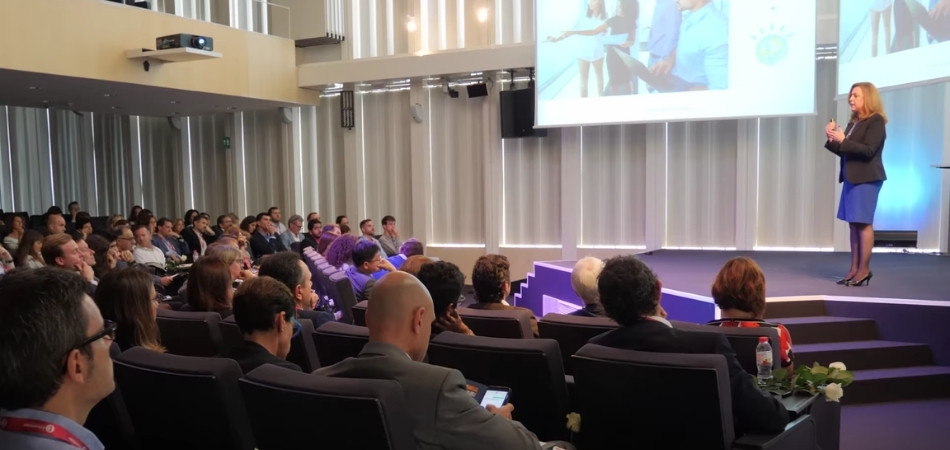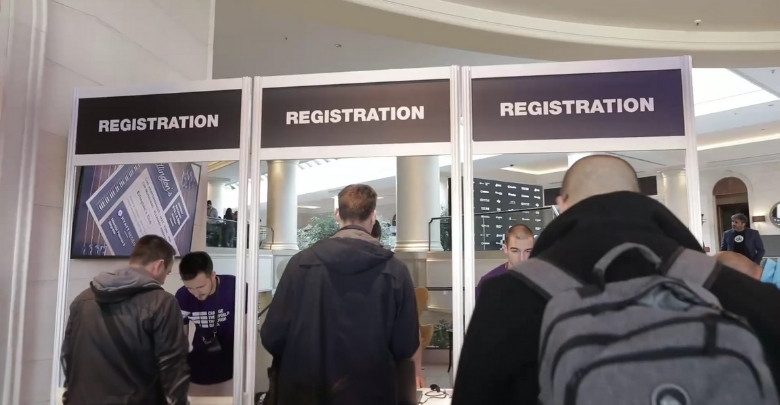International conferences in Canada draw professionals, students, and innovators from around the globe. These events are more than just regular events; they’re a gateway to knowledge-sharing, networking, and new opportunities. But who exactly qualifies to join these prestigious events and make the most of what they offer?
Simply put, the answer to “Who can attend international conferences in Canada?” includes a wide range of individuals—from students and researchers to industry experts and policymakers. If you have a passion for learning and contributing to your field, chances are, you can attend.
Are you curious to see if you meet the criteria? Keep reading to discover detailed eligibility requirements, tips for maximizing your experience, and how to apply to these transformative events.
Why Should You Attend International Conferences in Canada?
Attending international conferences in Canada can be a game-changer for your career or academic journey. These events offer more than just presentations and discussions; they provide a unique platform to grow, learn, and connect with global experts. Here are some compelling reasons why you should consider attending.
Expand Your Professional Network
Networking is one of the biggest advantages of attending international conferences. You get to meet like-minded professionals, academics, and industry leaders from around the world. Building these connections can open doors to collaborations, partnerships, and even new job opportunities.
Gain Access to Innovative Knowledge
Conferences are where the latest research, innovations, and industry trends are showcased. Attending these events gives you direct access to groundbreaking studies, emerging technologies, and new strategies that can be applied to your work or research.
Boost Your Career Development
Whether you’re looking to advance your career, switch industries, or grow your business, international conferences provide valuable resources and insights. Workshops, training sessions, and expert-led discussions can help you develop the skills needed to reach your career goals.
Showcase Your Work to a Global Audience
If you’re a researcher, entrepreneur, or innovator, presenting at these conferences is an excellent way to showcase your ideas to an international audience. This exposure can lead to recognition, feedback from experts, and opportunities for further development or funding.
Experience Cultural Exchange and Global Perspectives
Attending a conference in Canada also means immersing yourself in a multicultural environment. You gain insights into different cultures, perspectives, and global challenges, broadening your knowledge and enriching both your personal and professional life.
These points make it clear that attending international conferences in Canada is an investment in your growth, knowledge, and future success.
Who Can Attend International Conferences in Canada: Eligibility Criteria
Attending international conferences in Canada can be a career-defining opportunity for many. Whether you’re a professional looking to expand your horizons or a student eager to present your research, these events serve diverse audiences. Acknowledging the eligibility criteria is key to knowing if you qualify for this enriching experience.
Professionals and Industry Experts
International conferences in Canada often prioritize professionals and industry experts who have a solid background in their respective fields. If you’re an expert in areas like technology, healthcare, business, or education, you’re likely eligible to attend these conferences.
Professionals are typically expected to have relevant experience or a proven track record in their industry. Highlighting your achievements or contributions to your field can boost your chances of getting accepted into exclusive industry-specific events.
Students and Researchers
Students and researchers make up a significant portion of the attendees at these conferences. If you’re pursuing higher education or conducting research in a particular field, most conferences in Canada will welcome you.
Both undergraduate and postgraduate students can participate, often with discounted registration fees. Researchers actively working on innovative projects can use these platforms to present their findings, exchange ideas, and receive feedback from peers and experts.
Academics and Scholars
Academics, including professors and scholars, play a vital role in the success of these conferences by sharing knowledge and leading discussions. Many international conferences in Canada are designed to facilitate knowledge exchange among scholars from various disciplines.
Academics who have published papers or have ongoing research projects in the conference’s focus area are usually given priority. This not only provides a stage for them to present their work but also to collaborate with like-minded professionals.
Government Officials and Policymakers
For those involved in government roles or policymaking, international conferences in Canada offer a space to explore global strategies and policies. These individuals can bring a wealth of knowledge to discussions on public policy, economic development, and international relations.
Eligibility for government representatives typically depends on their involvement in creating or implementing policies relevant to the conference themes. Additionally, those attending may need to consider obtaining a work permit for attending Canadian conferences if their roles require them to engage in specific activities during the event. Research, industry, and governance benefit from their presence.
Non-Governmental Organizations (NGOs) and Non-Profits
NGOs and non-profit representatives are often invited to participate in conferences that focus on social, environmental, or economic issues. These organizations play a critical role in driving change and influencing global initiatives.
To qualify, NGO representatives usually need to demonstrate how their work aligns with the objectives of the conference. This alignment ensures that their participation contributes to the broader goals of community development and social impact.
Entrepreneurs and Startups
International conferences in Canada also attract entrepreneurs and startup founders who are eager to showcase their innovative ideas and network with investors. These events provide a fertile ground for business development and growth.
Startups and entrepreneurs who have unique solutions or are looking for mentorship and investment opportunities will find these conferences particularly beneficial. Presenting a solid business plan or an innovative product can help you gain visibility in the global market.
No matter which category you fall into, being clear about your objectives and knowing the eligibility criteria is crucial to making the most of these opportunities. Meeting the basic requirements increases your chances of acceptance, paving the way for professional growth, collaboration, and learning.
How to Apply for International Conference Participation in Canada?
Applying for an international conference in Canada can seem overwhelming, but breaking the process into clear steps can make it much simpler. Following these guidelines will help you prepare and increase your chances of being accepted. Here’s how you can manage the application process efficiently.
Step 1: Identify the Right Conference
Start by researching conferences that align with your academic or professional interests. Use online directories, industry forums, and social media channels to find the events that best suit your goals and area of expertise.
Step 2: Check the Eligibility Requirements
Each conference has its own set of criteria for participants. Ensure that you meet the required qualifications, whether it’s a certain level of education, work experience, or specific research in a relevant field.
Step 3: Gather Necessary Documentation
Prepare the documents you’ll need for your application, such as your resume, academic transcripts, a summary of your research, or a professional portfolio. When applying for upcoming international conferences in Canada 2024, having these materials ready beforehand will streamline your application process.
Step 4: Complete the Registration Form
Fill out the registration form accurately, paying attention to details like your personal information, professional background, and areas of interest. Double-check for any errors that might delay your application or lead to disqualification.
Step 5: Submit an Abstract or Proposal (if required)
Some conferences require an abstract or proposal detailing your research or presentation topic. Ensure that your submission is clear, concise, and aligns with the conference’s theme to increase your chances of acceptance.
Step 6: Apply for a Visa (if necessary)
If you’re traveling from another country, you’ll need to apply for a Canadian visa. Use the invitation letter from the conference organizers to support your application and ensure you meet all visa requirements well in advance.
Step 7: Book Your Travel and Accommodation
Once your registration is confirmed and your visa is approved, make your travel arrangements. Book flights and accommodation early to secure the best deals and avoid last-minute hassles.
Following these steps will help you confidently apply for international conference participation in Canada. Thorough preparation not only increases your chances of acceptance but also ensures a smooth and rewarding experience at the event.
How to Determine If You Qualify to Attend?
Before registering for any international conference in Canada, you should assess your eligibility. Recognizing the requirements and the type of attendees each conference caters to will help you make an informed decision about participation. Here are some key factors to consider:
- Conference Themes and Topics: Ensure that the conference themes align with your professional or academic interests. You should attend events that match your area of expertise or learning goals to maximize your experience.
- Participant Categories: Conferences often categorize attendees into students, professionals, researchers, academics, and industry experts. Identify which category you belong to and if the event has specific tracks or sessions designed for people like you.
- Academic or Professional Background: Some conferences may require a certain level of education or professional experience. For instance, technical conferences may ask for specific qualifications or work experience in the field.
- Invitation Letters and Visa Requirements: Some conferences provide invitation letters to help with visa processes. Therefore, attending Canadian conferences with invitation letter will make the visa application process smoother and more straightforward.
- Registration Fees and Financial Considerations: Consider the cost of attending, including registration fees, travel expenses, and accommodation. Make sure the investment aligns with your career or academic goals.
Tips for Maximizing Your Experience at Canadian Conferences
Attending a conference can be a transformative experience if you know how to make the most of it. Whether you’re there to learn, network, or share your insights, having a plan can upgrade your experience. Here are a few tips to help you maximize your time at Canadian conferences.
Define Your Goals Clearly
Before you arrive, define what you want to achieve at the conference. Whether it’s learning about new trends or connecting with specific people, having clear goals will guide your focus.
Create a Personalized Schedule
Conferences often have multiple sessions running at the same time. Prioritize the ones that align with your interests and skip those that don’t add value to your objectives.
Engage with Speakers and Attendees
Don’t be a passive participant. Ask questions, introduce yourself to speakers, and join discussions. Engaging actively will help you gain deeper insights and create memorable connections.
Network with Purpose
Networking is one of the most valuable aspects of any conference. Prepare your elevator pitch, bring plenty of business cards, and aim to make genuine connections rather than just exchanging contact details.
Take Meaningful Notes
While listening to presentations, take notes that go beyond the basics. Write down actionable takeaways and ideas you can implement in your work or research after the event.
Follow Up After the Conference
Keep the momentum going by following up with people you meet. Send a thank-you note, connect on LinkedIn, and continue the conversation to build long-term professional relationships.
By applying these tips, you’ll not only enhance your conference experience but also maximize the return on your investment of time and resources. Make every interaction count, and watch how these opportunities help you grow personally and professionally.
Common Mistakes to Avoid When Registering for Conferences
Registering for an international conference can be an exciting step toward expanding your knowledge and professional network. However, even small errors in the registration process can lead to missed opportunities. To ensure a smooth experience, here are some common mistakes you should avoid.
Skipping the Eligibility Check
Many people overlook the eligibility requirements before registering. Not verifying if you meet the criteria can lead to wasted time and denied applications. Always review the conference guidelines to make sure you’re a suitable candidate.
Delaying the Registration Process
Delaying is a common error that can cost you your spot at a popular conference. Registration slots often fill up quickly, and last-minute applicants might face higher fees or limited availability. Register early to secure your place and save on costs.
Incomplete Documentation
Submitting incomplete or incorrect documents can delay your application or even result in rejection. Double-check all required documents like resumes, research abstracts, or invitation letters before submitting your registration to avoid unnecessary complications.
Ignoring Visa and Travel Requirements
For international participants, overlooking visa and travel arrangements can be a significant mistake. Make sure to apply for your visa well in advance and use any invitation letters provided by the conference to support your application. This preparation will prevent travel-related setbacks.
Lack of Preparation for Conference Sessions
Failing to plan your conference schedule in advance can result in missed opportunities. Research the event’s agenda and decide which sessions, workshops, or networking events are most relevant to your goals. Preparing ahead ensures you make the most of your experience.
Avoiding these common pitfalls will not only streamline your registration process but also improve your overall conference experience. Proper planning and attention to detail can make all the difference in gaining the most value from these events.
Frequently Asked Questions (FAQs)
Attending international conferences in Canada raises many questions, especially for those exploring their eligibility. Here are some frequently asked questions to address any doubts you might have about joining these events.
Can Students Attend International Conferences in Canada?
Yes, students are welcome to attend many international conferences in Canada. Undergraduate, graduate, and Ph.D. students often participate, with some events even offering discounted rates. Students may also have opportunities to present research or network with professionals.
Is Prior Professional Experience Required to Attend?
Not necessarily. While some conferences may prioritize attendees with professional experience, others are open to anyone interested in the field. Many events encourage both newcomers and experts to join, fostering a diverse learning environment for all participants.
Do I Need to Be a Member of Any Organization to Attend?
No, most conferences do not require specific memberships for participation. While affiliated members might receive discounts, the majority of events are open to the general public, provided they meet the eligibility requirements set by the conference organizers.
Can International Attendees Get a Visa Support Letter from the Conference?
Yes, many international conferences in Canada offer visa support letters to help attendees with their visa applications. It’s advisable to check the specific guidelines of the event and apply for this support well in advance of your travel plans.
Is There an Age Limit for Attending International Conferences in Canada?
Typically, there is no strict age limit for attending international conferences in Canada. Most events welcome participants of all ages, although youth-oriented or student-specific sessions may have guidelines targeting younger attendees for certain tracks or workshops.
Conclusive Words
International conferences in Canada are gateways to knowledge, collaboration, and professional growth. Whether you’re a student, researcher, professional, or entrepreneur, these events are designed to cater to diverse participants, enriching their careers and expanding their networks.
The answer to “Who can attend international conferences in Canada?” is simple, anyone passionate about learning and contributing to their field. As long as you meet the specific requirements set by the event organizers, you have the opportunity to join these prestigious gatherings.
Ready to make the most of these experiences? Take advantage of the chance to connect with global experts, share ideas, and gain insights that could shape your future. Explore your options and take the next step toward your conference journey in Canada.








